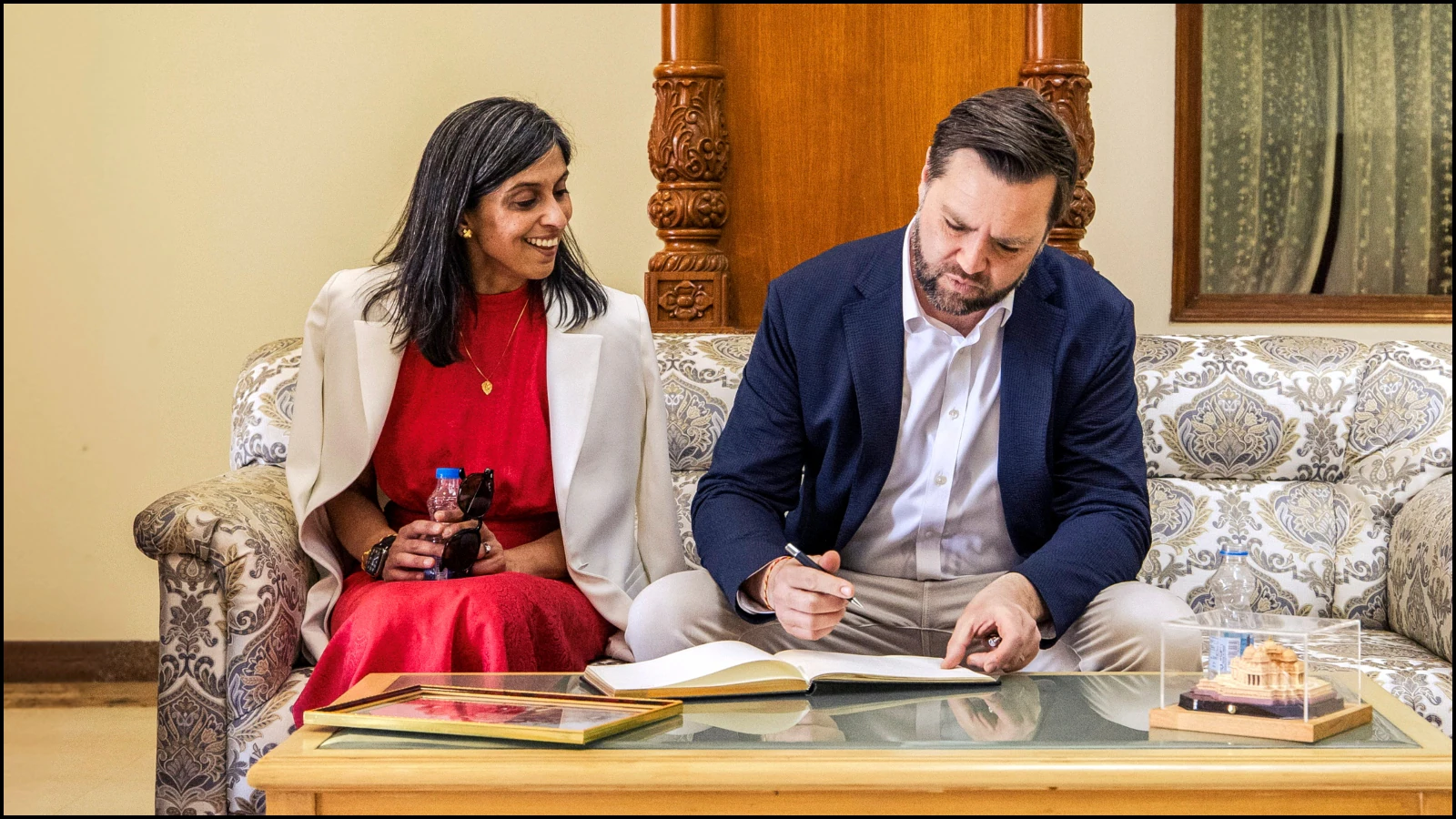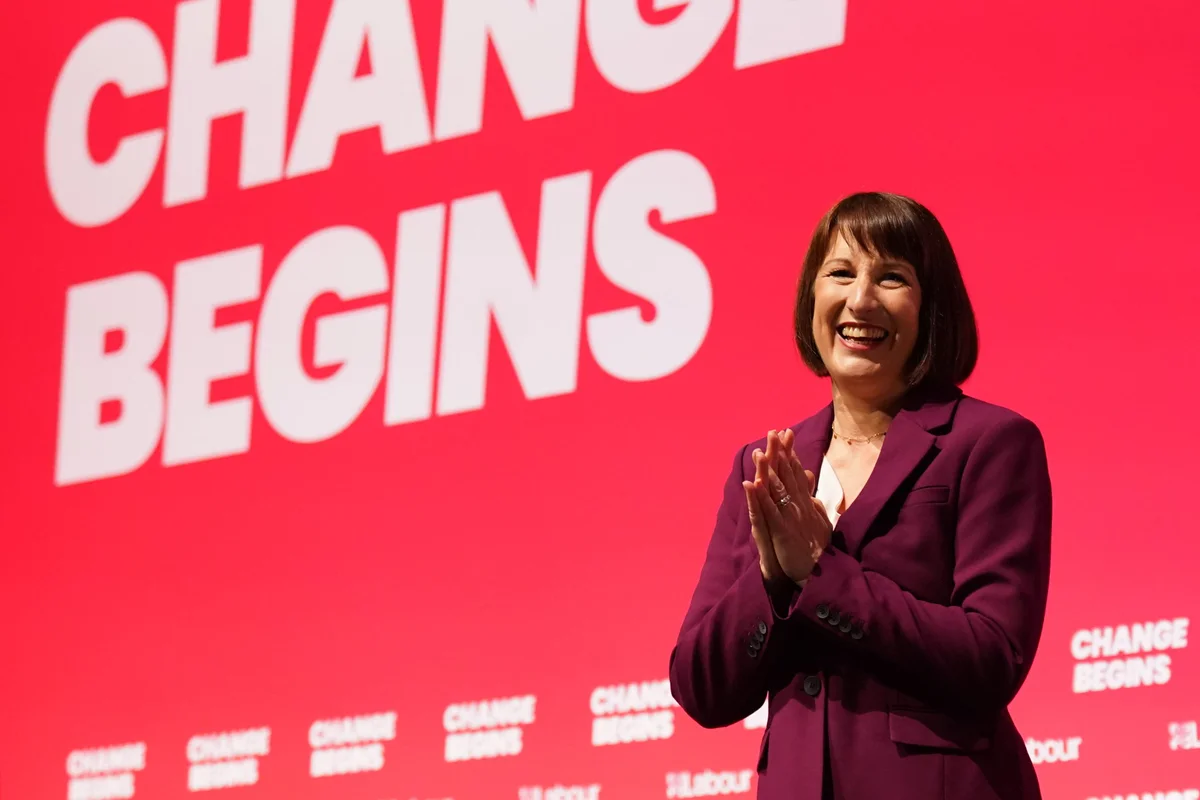Copyright news18

As he inches closer to the next presidential race, American Vice President JD Vance has decided to answer the most burning question of his personal life—the question of his wife’s Hindu faith. “My wife did not grow up Christian. I think it’s fair to say she grew up in a Hindu family but not in a particularly religious family,” Vance said recently at a Turning Point USA event, before going on to explain, almost apologetically, how both he and Usha were “agnostic or atheist” when they met. “We decided to raise our kids Christian,” he added, noting that their eight-year-old had his first communion a year ago, which was followed by loud applause. Then came the call to convert: “Most Sundays, Usha will come with me to church… Do I hope eventually that she is somehow moved by the same thing that I was moved by in church? Yeah, I honestly do wish that. But if she doesn’t, God says everybody has free will and that doesn’t cause a problem for me.” The audience erupted in applause. But underneath the applause was a revealing political calculus. The “deal” that JD and Usha Vance had as a couple, a quiet consensus built on love, tolerance, and mutual respect, was suddenly up for public scrutiny. MAGA scrutiny. And Vance sensed it. Instead of simply answering the question, which, notably, came from a woman of Indian origin and wasn’t about conversion at all but about acceptance, Vance felt compelled to declare that his wife was indeed raised Hindu, but not that Hindu. He wasn’t responding to the questioner; he was responding to the crowd. The MAGA crowd. The Making of JD and Usha A little background on JD Vance helps explain the stakes. While Usha Vance came from a solid Hindu family with a strong, middle-class upbringing, JD was raised loosely as an evangelical in a childhood marked by poverty, instability, and a mother battling addiction. He chronicled that life in Hillbilly Elegy, the memoir that made him a star and a symbol of working-class grit. Years later, after becoming a venture capitalist, Vance found his way to Catholicism in 2019. Usha, who had long supported his spiritual searching, reportedly told him it was “good for him”. But now, atheist-turned-Catholic JD Vance appears to want his wife to follow him down that same path and is willing to say it out loud as vice president of the United States. “It’s her free will. But I’d like her to convert one day.” It’s hard to miss the tone-deafness. A husband publicly expressing hope that his wife will one day “find her way” to his religion. In a political climate so charged against Indian immigrants, this is not just personal. It’s political. It’s a presidential call to convert. The Hindu First Lady Question For Hindu Americans, the implications are not lost. JD Vance, who could not find time to drop a Diwali message and instead distanced himself from a moment that could draw on that link better than anyone else. Trump did better. He lit lamps at the White House with Indian Americans by his side, even if it angered his MAGA base. “Diwali is a foreign thing,” some of them raged online. “Anyone who celebrates it should be deported.” Trump, of course, can afford not to care. This is his last term. But Vance cannot. He needs MAGA to believe in his future. To invest in his possibility. And to do that, he feels the need to iron this Hindu matter out, one way or another. Which brings America to an uncomfortable but necessary conversation: the possibility, and acceptability, of a Hindu First Lady. Contrary to her husband’s characterisation, Usha Vance appears to be a woman with a very normal Hindu upbringing, like most modern Hindus. Not “in your face” religious, but also proud of her faith and not open to conversion, as she has stated herself. “I am not intending to convert or anything like that,” she said in an interview. She blends easily with her husband’s Christian faith, precisely because her Hindu upbringing never taught her to hate another’s religion. But that doesn’t mean she’d accept Christianity as the only faith in their household. Usha’s view has always been that her children should have a choice. As she once said, “The kids know that I’m not Catholic, and they have plenty of access to the Hindu tradition—from books that we give them, to things that we show them, to the recent trip to India, and some of the religious elements of that visit.” There was a deal. It seemed to work. Until now. Vance’s public remarks have unsettled that delicate arrangement, casting his wife’s faith as a kind of problem to be fixed, a soul yet to be “moved”. It’s the image of a husband proselytising to the woman who has only ever supported him. She gave up her career for him. Trusted him enough to make three children with him. This feels like betrayal dressed as piety. A Contrast with India Now imagine if an Indian Hindu leader had said something similar about a Muslim or Christian wife: “You’re great, but I hope you convert someday.” It would be international news for all the wrong reasons. There would be outrage over religious coercion. Religious freedom would be questioned. “Hindu nationalism” would be condemned as militant and abusive. Minorities would be appalled. For all the finger-pointing at India’s religious politics, the contrast is striking. India has had three Muslim presidents—APJ Abdul Kalam, Fakhruddin Ali Ahmed, Zakir Hussain, and one Sikh president, Giani Zail Singh. It has had a Sikh Prime Minister, Manmohan Singh. None of them were ever asked to convert to prove their loyalty. America’s secularism is rooted in modernity and enlightenment. Yes, it would not be possible without its Christians, but it took centuries to build. India’s, on the other hand, is woven through millennia into the accommodating fabric of Hinduism itself, where the default instinct is to listen and accept, not hate. Yet JD Vance, a sitting American vice president, can say the same about his Hindu wife, and it slips through the cracks of public outrage. This would not end up anywhere near America’s infamous religious freedom reports dished out to the world. That’s the hypocrisy. When an American leader suggests that his Hindu wife’s conversion would be desirable, it’s not just a personal sentiment. With MAGA in the room, any possible conversion of Usha Vance would become a political act: a slap in the face of Hindu Americans, and a validation of the idea that holding office means being Christian first. This saga signals to millions of Hindu Americans that the highest offices in the land remain implicitly tethered to Christianity. That to hold power or even be married to someone who does, one must be Christian first. And that’s not very democratic. The thing with JD Vance is, he may have been great so far as a husband, but he feels the pressure now, the closer he gets to the Oval Office. And instead of standing up to it, he’s bending. Rather than defending his wife’s dignity, he’s giving in to the noise, treating his wife’s faith like a political liability, all while trying to please the MAGA base that treats it like a repulsive blot. As a husband and a leader, he has a responsibility to do better. But he is recklessly monkey-balancing at best, and at worst, joining in on the religious harassment of his own wife. It’s a terrible look. It reeks of weak morals and tacit betrayal—in love, and in leadership.



